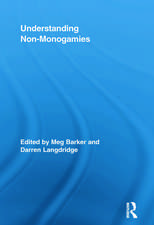Misers, Shrews, and Polygamists – Sexuality and Male–Female Relations in Eighteenth–Century Chinese Fiction
Autor Keith Mcmahonen Limba Engleză Paperback – 7 mar 1995
Having multiple wives was one of the mainstays of male privilege during the Ming and Qing dynasties of late imperial China. Based on a comprehensive reading of eighteenth-century Chinese novels and a theoretical approach grounded in poststructuralist, psychoanalytic, and feminist criticism, Misers, Shrews, and Polygamists examines how such privilege functions in these novels and provides the first full account of literary representations of sexuality and gender in pre-modern China.
In many examples of rare erotic fiction, and in other works as well-known as Dream of the Red Chamber, Keith McMahon identifies a sexual economy defined by the figures of the "miser" and the "shrew"—caricatures of the retentive, self-containing man and the overflowing, male-enervating woman. Among these and other characters, the author explores the issues surrounding the practice of polygamy, the logic of its overvaluation of masculinity, and the nature of sexuality generally in Chinese society. How does the man with many wives manage and justify his sexual authority? Why and how might he escape or limit this presumed authority, sometimes to the point of portraying himself as abject before the shrewish woman? How do women accommodate or coddle the man, or else oppose, undermine, or remold him? And in what sense does the man place himself lower than the spiritually and morally superior woman?
The most extensive English-language study of Chinese literature from the eighteenth century, this examination of polygamy will interest not only students of Chinese history, culture, and literature but also all those concerned with histories of gender and sexuality.
In many examples of rare erotic fiction, and in other works as well-known as Dream of the Red Chamber, Keith McMahon identifies a sexual economy defined by the figures of the "miser" and the "shrew"—caricatures of the retentive, self-containing man and the overflowing, male-enervating woman. Among these and other characters, the author explores the issues surrounding the practice of polygamy, the logic of its overvaluation of masculinity, and the nature of sexuality generally in Chinese society. How does the man with many wives manage and justify his sexual authority? Why and how might he escape or limit this presumed authority, sometimes to the point of portraying himself as abject before the shrewish woman? How do women accommodate or coddle the man, or else oppose, undermine, or remold him? And in what sense does the man place himself lower than the spiritually and morally superior woman?
The most extensive English-language study of Chinese literature from the eighteenth century, this examination of polygamy will interest not only students of Chinese history, culture, and literature but also all those concerned with histories of gender and sexuality.
Preț: 302.36 lei
Nou
Puncte Express: 454
Preț estimativ în valută:
57.86€ • 60.41$ • 47.88£
57.86€ • 60.41$ • 47.88£
Carte tipărită la comandă
Livrare economică 05-19 aprilie
Preluare comenzi: 021 569.72.76
Specificații
ISBN-13: 9780822315667
ISBN-10: 0822315661
Pagini: 392
Dimensiuni: 150 x 236 x 29 mm
Greutate: 0.53 kg
Editura: MD – Duke University Press
ISBN-10: 0822315661
Pagini: 392
Dimensiuni: 150 x 236 x 29 mm
Greutate: 0.53 kg
Editura: MD – Duke University Press
Recenzii
"McMahon is able to speak with authority about the characteristics of the eighteenth-century Chinese vernacular novel. . . . He gives us a fuller view of the whole spectrum of chaste and erotic vernacular novels than does any other scholar writing in the English language." --Jeannette L. Faurot, The Journal of Asian Studies
Textul de pe ultima copertă
"This book provides for the first time in English an introduction to the real complexities of the mature Chinese novel tradition. It reflects insightful new conclusions drawn on pathbreaking scholarship. McMahon has gained access to rare novels in Chinese collections that few Chinese scholars have written about; his comments are of signal importance."--Robert E. Hegel, Washington University
Notă biografică
Keith McMahon











